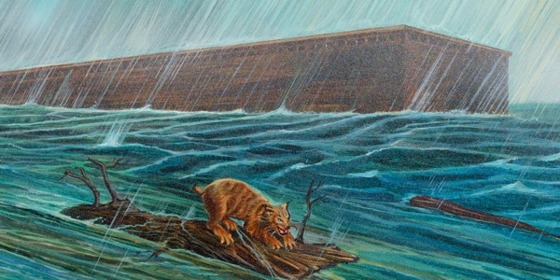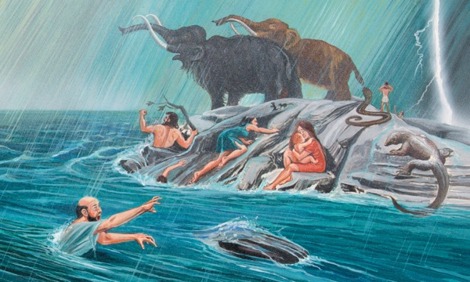50 Quotes about love

1. "The best love is the kind that awakens the soul; that makes us reach for more, that plants the fire in our hearts and brings peace to our minds. That’s what I hope to give you forever."
How love feels ...

2. "I look at you and see the rest of my life in front of my eyes."
— (Unknown)
It brings happiness ...

3. "The greatest happiness of life is the conviction that we are loved; loved for ourselves, or rather, loved in spite of ourselves."
What you learn from love ...

4. "All, everything that I understand, I only understand because I love."
Where love is, God is ...

5. "And remember, as it was written, to love another person is to see the face of God."
Why love matters ...

6. "I'm much more me when I'm with you."
— (Unknown)
Why love hurts ...
7. "It's a very dangerous state. You are inclined to recklessness and kind of tune out the rest of your life and everything that's been important to you. It's actually not all that pleasurable. I don't know who the hell wants to get in a situation where you can't bear an hour without somebody's company."
How love colors your world ...
8. "The best and most beautiful things in this world cannot be seen or even heard, but must be felt with the heart."
RELATED: 16 Life-Changing Quotes From The Internet's Most Mysterious Poet
Love is giving ...
9. "To love is nothing. To be loved is something. But to love and be loved, that’s everything."
— T. Tolis
Love is blind ...
10. "I saw that you were perfect, and so I loved you. Then I saw that you were not perfect and I loved you even more."
Love is unselfish ...
11. "In order to be happy oneself it is necessary to make at least one other person happy."
RELATED: 15 Happiness Quotes That Will Make Him Fall For You ALL OVER Again
When love takes over ...
12. "The heart wants what it wants. There's no logic to these things. You meet someone and you fall in love and that's that."
Love does not judge ...
13. "There's no substitute for a great love who says, 'No matter what's wrong with you, you're welcome at this table.'"
RELATED: 10 Ways The RIGHT Person Will Love You
Love grow and grows ...
14. "I swear I couldn't love you more than I do right now, and yet I know I will tomorrow."
Love means togetherness ...
15. "If you live to be a hundred, I want to live to be a hundred minus one day so I never have to live without you."
RELATED: 11 Little Things Men Secretly ADORE About The Women They Love
When love is real ...
16. "You don't love someone because they're perfect, you love them in spite of the fact that they're not."
― Jodi Picoult, My Sister's Keeper
Love without end ...
17. "I would rather spend one lifetime with you, than face all the ages of this world alone."
Love is friendship ...
18. "You are my best friend, my human diary and my other half. You mean the world to me and I LOVE YOU."
— (Unknown)
Love is a teacher ...
19. "If I know what love is, it is because of you."
RELATED: 25 Quotes From Disney Movies That Will Totally Melt Your Heart
Love is vulnerable ...
20. "Don’t forget I’m just a girl, standing in front of a boy, asking him to love her."
— Anna (Julia Roberts) to William (Hugh Grant) in Notting Hill
Love is a choice ...
21. "I choose you. And I'll choose you over and over and over. Without pause, without a doubt, in a heartbeat. I'll keep choosing you."
— (Unknown)
Love is complicated ...
22. "It is not a lack of love, but a lack of friendship that makes unhappy marriages."
Love is crazy, mad, wonderful ...
23. "When you realize you want to spend the rest of your life with somebody, you want the rest of your life to start as soon as possible."
RELATED: 23 Inspiring (And Hopeful!) Quotes About What Makes A Great Man
How love is poetic ...
24. "At the touch of love everyone becomes a poet."
― Plato
How you love like crazy ...
25. "I realized I was thinking of you, and I began to wonder how long you'd been on my mind. Then it occurred to me: Since I met you, you've never left."
— (Unknown)
Why love hurts ...
26. "Pleasure of love lasts but a moment. Pain of love lasts a lifetime."
Love is strength ...
27. "Being deeply loved by someone gives you strength, while loving someone deeply gives you courage."
— Lao-Tzu
How love works ...
28. "Love is like war: easy to begin but very hard to stop."
Love is life ...
29. "Thinking of you keeps me awake. Dreaming of you keeps me asleep. Being with you keeps me alive."
— (Unknown)
RELATED: 10 Quotes That NAIL What It REALLY Takes To Make True Love Last
When love finds you ...
30. "We are shaped and fashioned by those we love."
— Geothe
Love is wild and crazy ...
31. "When love is not madness it is not love."
Love is magical ...
32. "You have bewitched me body and soul, and I love, I love, I LOVE YOU."
What is love ...
33. "Love is an untamed force. When we try to control it, it destroys us. When we try to imprison it, it enslaves us. When we try to understand it, it leaves us feeling lost and confused."
How love should be ...
34. "Love is so short, forgetting is so long."
Love is freedom ...
35. "One word frees us of all the weight and pain of life: That word is love."
How love begins ...
36. "I wish I could turn back the clock. I'd find you sooner and love you longer."
— (Unknown)
Love is unselfish ...
37. "You know it's love when all you want is that person to be happy, even if you're not part of their happiness."
Why love is important ...
38. "The greatest thing you'll ever learn Is to love and be loved in return."
— "Unforgettable with Love" by Natalie Cole
Love is the little things ...
39. "I hope you know that every time I tell you to get home safe, stay warm, have a good day, or sleep well what I am really saying is I love you. I love you so damn much that it is starting to steal other words' meanings. "
— Open-365
RELATED: 50 Love Quotes Guaranteed To Make You FEEL Things
Love brings joy ...
40. "I have decided to stick to love; hate is too great a burden to bear."
How love lasts ...
41. "You don't love someone for their looks, or their clothes, or for their fancy car, but because they sing a song only you can hear."
Love is worth it ...
42. "Better to have lost and loved than never to have loved at all."
RELATED: How It Feels When You're In LOVE, According To Your Zodiac Sign
How love changes over time ...
43. "When I say I love you more, I don't mean I love you more than you love me. I mean I love you more than the bad days ahead of us, I love you more than any fight we will ever have. I love you more than the distance between us, I love you more than any obstacle that could try and come between us. I love you the most."
— (Unknown)
RELATED: How It Feels When You're In LOVE, According To Your Zodiac Sign
Love is silly ...
44. "All you need is love. But a little chocolate now and then doesn't hurt."
Where love lies ...
45. "Where there is love there is life."
Love is unconditional ...
46. "I want you. All of you. Your flaws. Your mistakes. Your imperfections. I want you, and only you."
— (Unknown)
Love is give and take ...
47. "And in the end, the love you take, is equal to the love you make."
Because love makes everything beautiful ...
48. "Because I could watch you for a single minute and find a thousand things that I love about you."
— (Unknown)
Love makes you lose your mind a little ...
49. "There is a madness in loving you, a lack of reason that makes it feel so flawless."
Love is EVERYTHING ...
50. "All of me loves all of you."








